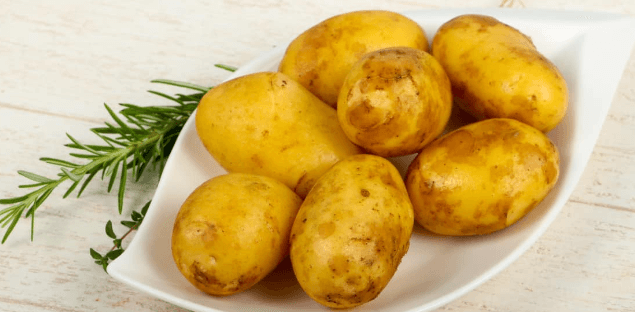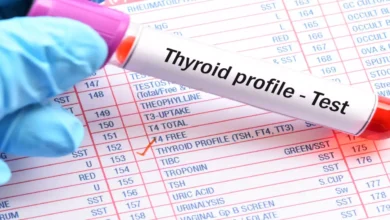Navigating Your Diet: Potatoes And Their Role In Diabetes Management

A healthy diet is an important part of diabetes management since it helps keep blood sugar levels steady and promotes general well-being. Among the myriad of foods to consider, potatoes often spark debate due to their carbohydrate content and impact on blood glucose. This article explores the relationship between potatoes and diabetes, offering insights on how to incorporate them into a balanced diet. Managing diabetes does not mean completely eliminating potatoes from your diet; instead, it involves understanding how to incorporate them wisely, which raises the question: can diabetics eat potatoes?
Carbohydrates And Potatoes: A Comprehensive Overview
Potatoes are a staple in many diets around the world, valued for their versatility and nutritional benefits. Their high fiber, vitamin, and mineral content makes them a nutritious option. However, their high carbohydrate content can raise concerns for those managing diabetes.
Carbohydrates in potatoes are primarily starches, which break down into glucose during digestion. This glucose then enters the bloodstream, potentially causing blood sugar spikes. Therefore, understanding the glycemic index (GI) and glycemic load (GL) of potatoes is essential for diabetics.
Glycemic Index And Glycemic Load
How rapidly a meal increases blood sugar levels is determined by its glycemic index. Foods with a high GI cause rapid spikes, while those with a low GI have a slower, more gradual effect. Potatoes generally have a high GI, especially when prepared in certain ways like baking or frying. For instance, a baked potato can have a GI ranging from 85 to 111, while mashed potatoes might have a GI of around 70.
Glycemic load considers both the GI and the carbohydrate content of a serving size. A high GL indicates a significant impact on blood glucose levels. It is possible to limit the GL of potatoes, despite their high GI, by regulating portion amounts and cooking techniques.
Health Benefits Of Potatoes
Despite their carbohydrate content, potatoes offer several health benefits that should not be overlooked:
Nutrient-Rich: Potatoes are a good source of vitamin C, vitamin B6, potassium, and dietary fiber. These nutrients support various bodily functions, including immune health, nerve function, and heart health.
Satiety: The fiber in potatoes can contribute to feelings of fullness, which helps in managing overall calorie intake and preventing overeating.
Antioxidants: Potatoes are a good source of anti-inflammatory and oxidative stress-fighting antioxidants, including flavonoids, carotenoids, and phenolic acids.
Incorporating Potatoes Into A Diabetic Diet
Managing diabetes does not mean completely eliminating potatoes from your diet. Instead, it’s about making mindful choices and incorporating them in a way that minimizes their impact on blood sugar levels. Here are some tips for including potatoes in a diabetic-friendly diet:
Opt For Smaller Portions: Control portion sizes to manage carbohydrate intake. A small to medium potato can be a reasonable serving without significantly impacting blood glucose levels.
Choose Cooking Methods Wisely: Preparation methods can influence the GI of potatoes. Boiling or steaming potatoes generally results in a lower GI compared to baking or frying. For example, boiled potatoes have a GI of around 50, making them a better choice for diabetics.
Pair With Protein and Fiber: To decrease carb absorption, eat potatoes with protein (chicken, beans, etc.) and fiber (vegetables, etc.) The meal’s nutritional profile is improved, and blood sugar levels are stabilized by this combination.
Incorporate Sweet Potatoes: Sweet potatoes have a lower GI than regular potatoes and are rich in fiber, vitamins, and antioxidants. They can be a nutritious alternative, offering a sweet flavor without causing significant blood sugar spikes.
Monitor Blood Sugar Levels: To learn how various potato varieties and serving sizes influence your blood glucose levels, it’s important to monitor them on a regular basis. This information can help tailor your diet to better manage your diabetes.
Potential Risks And Considerations
While potatoes can be part of a balanced diabetic diet, it’s essential to be aware of potential risks:
Processed Potato Products: Potato chips, fries, and other processed products often contain unhealthy fats and added sugars, which can exacerbate blood sugar management issues. It’s best to avoid these options and focus on whole, minimally processed potatoes.
Individual Responses: Everyone’s body responds differently to foods. What works for one person might not work for another. Pay attention to how your body reacts to potatoes and adjust your diet accordingly.
Overall Diet Quality: Potatoes should be part of a varied and balanced diet. A varied diet rich in fruits, vegetables, lean meats, and healthy fats can do wonders for your diabetes control and general well-being.
See also: Clearing The Confusion: Vicodin Detection Time in Different Tests
Conclusion
Potatoes, when included thoughtfully in a diabetic diet, can provide valuable nutrients and contribute to meal satisfaction. By understanding their glycemic impact and adopting strategies for balanced consumption, individuals with diabetes can enjoy potatoes while maintaining good blood sugar control. Always remember that managing diabetes involves a holistic approach, incorporating a variety of healthy foods and regular monitoring of blood glucose levels. Individualized support in making healthy food choices is available through consultation with a healthcare professional or certified dietitian.
Navigating your diet with a focus on managing diabetes doesn’t mean depriving yourself of nutritious foods like potatoes. Instead, it’s about making educated choices and finding a balance that supports both your health and enjoyment of food.






